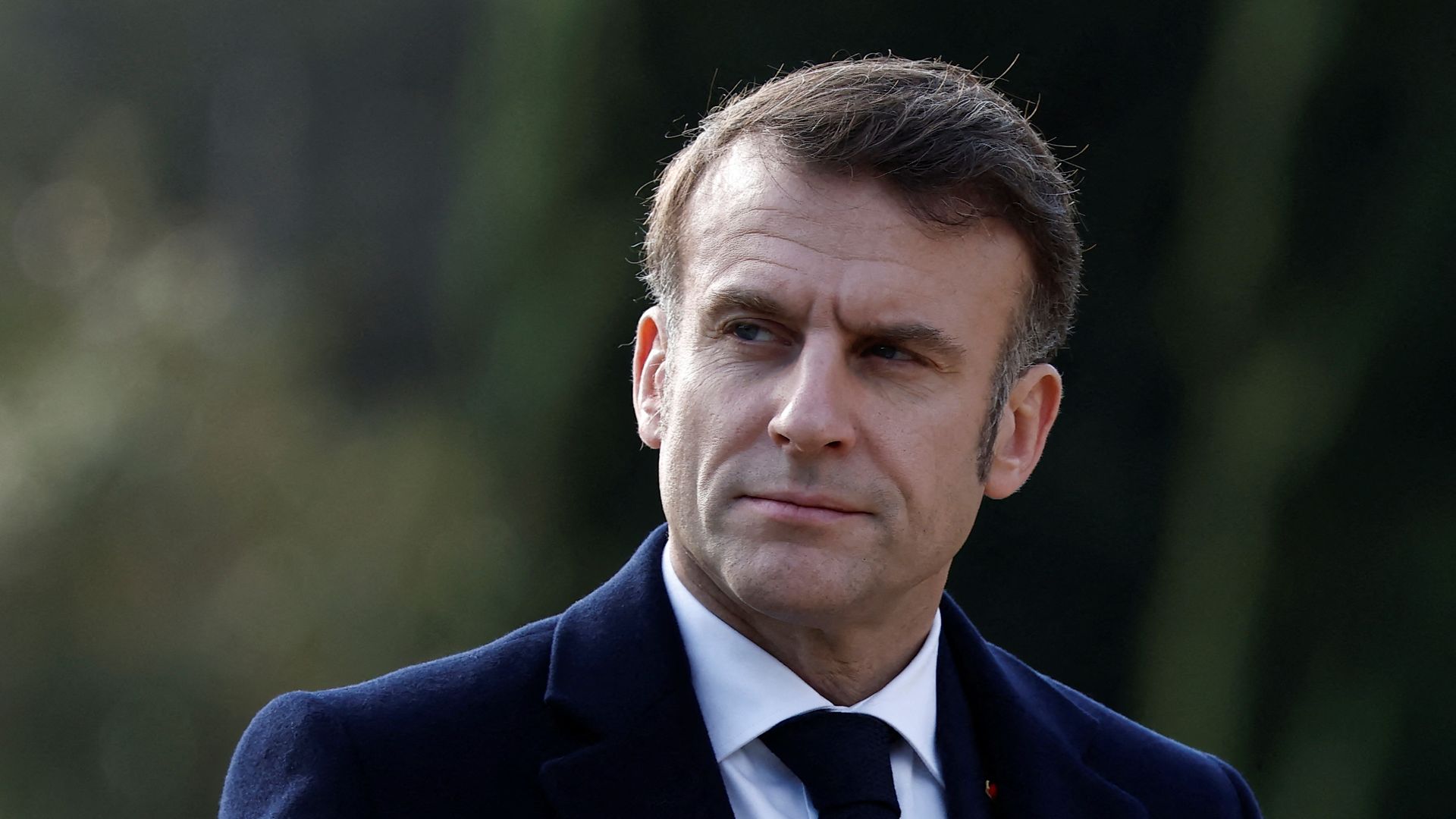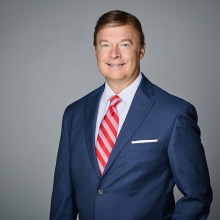
European leaders gather for emergency summit amid Trump-Putin peace talks
By Craig Nigrelli (Anchor), Brock Koller (Senior Producer), Shea Taylor (Producer), Kaleb Gillespie (Video Editor)
- European leaders are gathering in Paris on Monday, Feb. 17, for an emergency meeting to discuss security concerns following the Trump administration’s announcement of US-Russia peace talks to end the war in Ukraine without European involvement. French President Emmanuel Macron will host the informal summit.
- European leaders will discuss their role in future security guarantees for Ukraine.
- The U.S. position on Ukraine remains uncertain. Secretary of State Marco Rubio indicated the U.S. might include Ukraine and European nations in later stages if the negotiations advance.
Full Story
European leaders are gathering in Paris for an emergency meeting on Monday, Feb. 17, to discuss security concerns following the Trump administration’s announcement that it will open negotiations with Russia to end the war in Ukraine—without European involvement. French President Emmanuel Macron will host the informal summit.
Media Landscape
See how news outlets across the political spectrum are covering this story. Learn moreBias Summary
- No summary available because of a lack of coverage.
- No summary available because of a lack of coverage.
- President Emmanuel Macron will host a meeting with European leaders to discuss Ukraine's future, as confirmed by French Foreign Minister Jean-Noel Barrot.
- U.S. President Donald Trump's special envoy claimed that Europe would lack representation in negotiations to end the Russia-Ukraine conflict, raising concerns among European leaders.
- Ukrainian President Volodymyr Zelenskyy stressed that Ukraine will not accept agreements made without its involvement and called for the creation of a European army.
- Leaders from France, Germany, the U.K. and other European nations are expected to attend the informal meeting in response to U.S. efforts to mediate peace talks.
Bias Distribution
Left
Right
Untracked Bias
Leaders from the U.K., Germany, Italy, Poland, Spain, the Netherlands and Denmark, along with officials from the European Council, the European Commission and NATO, will attend.

Download the SAN app today to stay up-to-date with Unbiased. Straight Facts™.
Point phone camera here
European leaders quickly organized the meeting after U.S. Vice President JD Vance delivered a speech in Munich, where he criticized European leaders and confirmed that initial U.S.-Russia talks would take place in Saudi Arabia.
How are European leaders responding?
The European Union is scrambling to form a unified response to Washington’s unilateral move. British Prime Minister Keir Starmer called the Paris summit a “once-in-a-generation” moment for European security. He emphasized that Europe must take the lead in ensuring Ukraine’s sovereignty.
European leaders will discuss their role in future security guarantees for Ukraine. It includes supplying military aid, enforcing a ceasefire and potentially deploying peacekeeping forces.
In the Daily Telegraph, Starmer wrote that he is “ready and willing” to contribute British troops if necessary to ensure a lasting peace.
What is the US position on Ukraine?
The Paris meeting follows President Donald Trump’s “lengthy” phone call with Russian President Vladimir Putin last week. After the call, Trump announced peace negotiations would begin “immediately.”
When asked if European leaders would participate in the talks, Trump’s envoy to Ukraine, Keith Kellogg, dismissed the possibility. He said, “I think that’s not gonna happen.”
Secretary of State Marco Rubio and National Security Adviser Mike Waltz are traveling to Saudi Arabia for the initial discussions. Talks will begin Tuesday, Feb. 18. Rubio has indicated the U.S. might include Ukraine and European nations in later stages if the negotiations advance.
Meanwhile, Vance has warned that if Russia refuses to negotiate in good faith, the U.S. could impose further sanctions or even consider military action. Speaking in Munich, he reiterated that “everything is on the table” regarding U.S. leverage over Moscow.
What is Ukraine’s stance?
Ukrainian President Volodymyr Zelenskyy has rejected any peace deal that does not involve Ukraine at the negotiating table.
“I will never accept any decisions between the United States and Russia about Ukraine, never,” Zelenskyy said.
Zelenskyy will travel to Saudi Arabia later this week. He will advocate for Ukraine’s direct involvement in the talks and call for stronger security guarantees. He hopes to ensure that any peace agreement does not compromise Ukraine’s sovereignty.
What’s at stake for Europe?
European leaders are increasingly concerned that Washington may broker a deal with Moscow that concedes Ukrainian territory to Russia. They also fear the U.S. could reduce its military presence in Europe, forcing NATO members to take on a greater security burden.
Macron has pushed for greater European defense autonomy, arguing that Europe must prepare for the possibility of a diminished American security guarantee.
Just 23 of NATO’s 32 member states currently meet the alliance’s 2% GDP defense spending target, and there is growing pressure for increased investment in European military capabilities. Macron has discussed with European leaders about forming a ceasefire buffer force in Ukraine, though no formal plans are set.
Get up to speed on the stories leading the day every weekday morning. Sign up for the newsletter today!
Learn more about our emails. Unsubscribe anytime.
By entering your email, you agree to the Terms & Conditions and acknowledge the Privacy Policy.
What happens next?
With U.S.-Russia talks set to begin in Saudi Arabia, European leaders are working to assert their influence in shaping Ukraine’s future.
Tensions remain high over whether Washington’s approach will lead to a lasting resolution or further uncertainty.
Macron indicated that the Paris meeting will be the first of many. He signaled that Europe is preparing for a long-term security strategy, even as the U.S. moves forward with negotiations.
The next few weeks will be crucial in determining whether Europe can influence the outcome of peace talks or if the Trump administration’s unilateral approach will redefine the global power balance.
[craig nigrelli]
MEANWHILE — EUROPEAN LEADERS ARE MEETING IN PARIS today FOR AN EMERGENCY SUMMIT. THE TOPIC ** EUROPEAN SECURITY ** WITH POLAND’S PRIME MINISTER SAYING “We need to show our strength and unity”,
FRENCH PRESIDENT EMMANUEL MACRON IS HOSTING THE QUOTE “INFORMAL MEETING” — WHICH WILL INCLUDE LEADERS FROM THE U-K, GERMANY, ITALY, POLAND, SPAIN, THE NETHERLANDS AND DENMARK — AS WELL AS THE PRESIDENT OF THE EUROPEAN COUNCIL, THE PRESIDENT OF THE EUROPEAN COMMISSION AND THE SECRETARY GENERAL OF NATO.
THE EUROPEAN DIPLOMATIC EFFORTS FOLLOW President Donald TRUMP’S “LENGTHY” PHONE CALL WITH Russian President Vladimir PUTIN LAST WEEK AFTER WHICH HE ANNOUNCED NEGOTIATIONS TO END THE UKRAINE WAR WOULD START “IMMEDIATELY”. Asked if Europeans had a role in talks between Russia and Ukraine, Trump’s envoy to Ukraine,, Keith Kellogg, said over the weekend, quote “I’m (from) a school of realism. I think that’s not gonna happen.”
Media Landscape
See how news outlets across the political spectrum are covering this story. Learn moreBias Summary
- No summary available because of a lack of coverage.
- No summary available because of a lack of coverage.
- President Emmanuel Macron will host a meeting with European leaders to discuss Ukraine's future, as confirmed by French Foreign Minister Jean-Noel Barrot.
- U.S. President Donald Trump's special envoy claimed that Europe would lack representation in negotiations to end the Russia-Ukraine conflict, raising concerns among European leaders.
- Ukrainian President Volodymyr Zelenskyy stressed that Ukraine will not accept agreements made without its involvement and called for the creation of a European army.
- Leaders from France, Germany, the U.K. and other European nations are expected to attend the informal meeting in response to U.S. efforts to mediate peace talks.
Bias Distribution
Left
Right
Untracked Bias
Straight to your inbox.
By entering your email, you agree to the Terms & Conditions and acknowledge the Privacy Policy.
MOST POPULAR
-
 Getty Images
Getty Images
White House denies Trump is moving to take over USPS despite report
Watch 2:461 hr ago -
 Getty Images
Getty Images
Senate passes budget resolution after overnight 'vote-a-rama'
Watch 9:167 hrs ago -
 Getty Images
Getty Images
Mexican president warns US not to invade her country’s sovereignty
Watch 1:3314 hrs ago -
 AP Images
AP Images
US response to ICBM from North Korea would be ‘overwhelming’
Watch 3:5019 hrs ago




